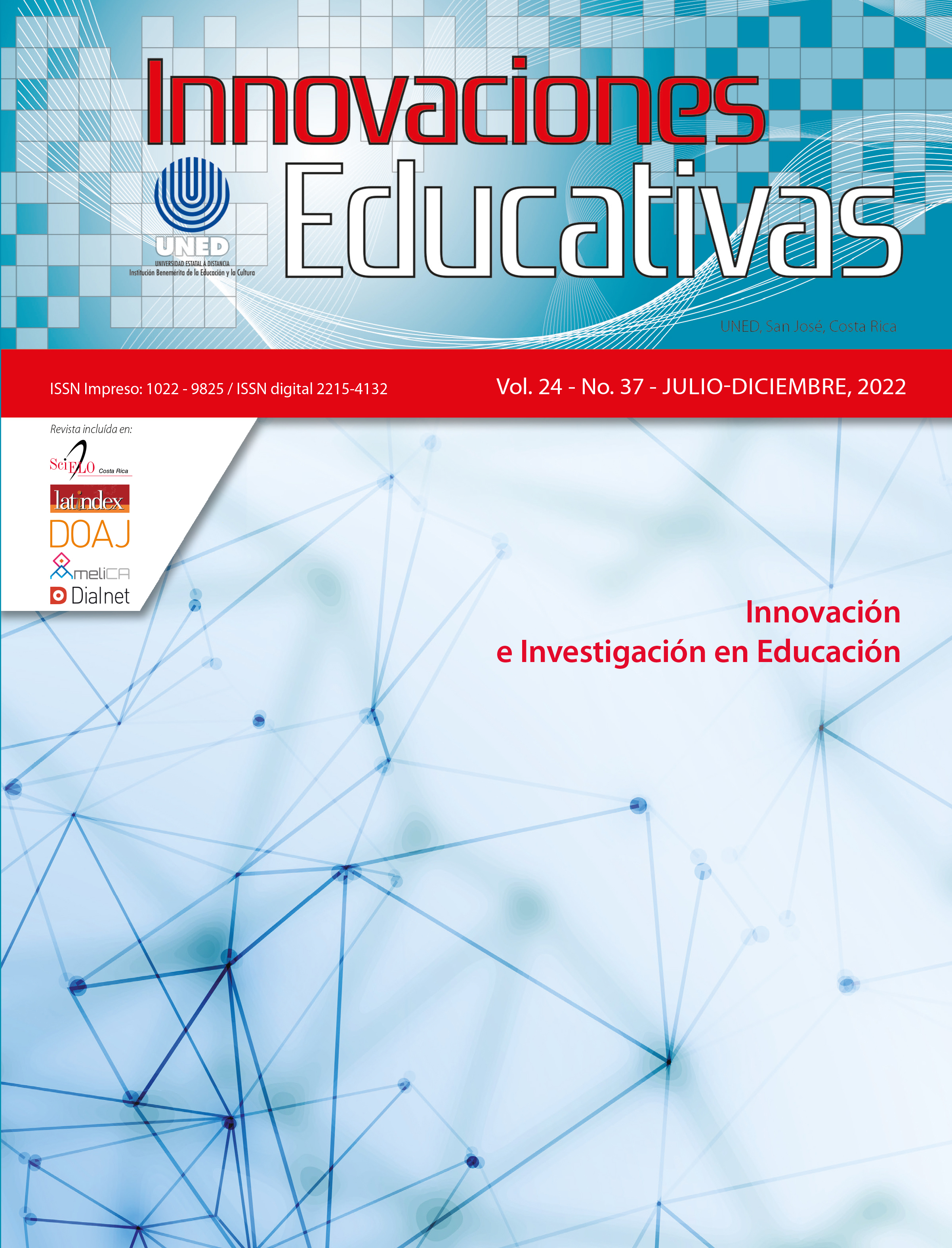The development of morality from Paulo Freire's pedagogy of autonomy
DOI:
https://doi.org/10.22458/ie.v24i37.4125Keywords:
educational autonomy, social behavior, moral development, education, Paulo Freire, pedagogyAbstract
The essay aims to carry out a theoretical analysis of the need to formally develop morality from basic general education in Costa Rica. For this task, Freire's pedagogy of autonomy was taken as the essential foundation of what a proposal for autonomous, critical and responsible moral formation with society can represent. Within the text you can also find theoretical analyzes and references to non-Latin American authors who have researched on this subject, who affirm that morality can be taught and can be formally developed but, in the end, Freirean pedagogy stands out as the basis for this type. of development in the country. The main conclusion is that it is possible and viable to formalize, plan and execute formally and in conjunction with the other subjects of the curriculum a critical and autonomous morality from an early age.
References
Aristóteles (1985). Ética nicomáquea. Ética eudemia. Gredos.
Durkheim, E. (2002). La educación moral. Trotta.
Eisenberg, N. (1979). Development of Children’s Prosocial Moral Judgment. Developmental Psychology, 15(2), 128-137. https://bit.ly/3jetFSw
Eisenberg, N., Lennon, R. & Roth, K. (1983). Prosocial Development: A Longitudinal Study. Developmental Psychology, 19(6), 846-855. https://bit.ly/37qGdnJ
Freire, P. (2005). Pedagogía del oprimido. Siglo XXI.
Freire, P. (2006). Pedagogía de la autonomía. Saberes necesarios para la práctica educativa. Siglo XXI.
Freire, P. (2009). La educación como práctica de la libertad. Siglo XXI.
Gibbs, J. (1977). Kohlberg's Stages of Moral Judgment: A Constructive Critique. Harvard Educational Review, 47(1), 43-61.
Gilligan, C. (1982). In a different voice. Psychological theory and women’s development. Harvard University Press. https://bit.ly/3oa9tF4
Guariglia, O. (2013). Introducción: Vida moral, ética y ética aplicada. En Guariglia, O. (ed.). Cuestiones morales (11-19). Trotta.
Habermas, J. (2000). Conciencia moral y acción comunicativa. Península.
Hersh, R., Reimer, J. & Paolitto, D. (1998). El crecimiento moral de Piaget a Kohlberg. Narcea.
Kohlberg, L. (1963). The Development of Children's Orientations Toward a Moral Order I. Sequence in the Development of Moral Thought. Vita Humana, 6(1/2), 11-33. https://bit.ly/35bKEQJ
Kohlberg, L. (1976). Moral Stages and Moralization: The Cognitive-Developmental Approach. En Lickona, T. (ed.). Moral Development and Behavior: Theory, Research and Social Issues (31-53). Holt, Rinehart and Winston. https://bit.ly/3m2SVNI
Kutnick, P. (1986). The relationship of moral judgment and moral action: Kohlberg’s theory, criticism and revision (125-148). En Modgil, S. y Modgil, C. (eds.). Lawrence Kohlberg. Consensus and Controversy. The Falmer Press.
Ministerio de Educación Pública (MEP) (2015). Política curricular. Educar para una nueva ciudadanía. https://bit.ly/2GuIaVi
Ministerio de Educación Pública (MEP) (2016). Programa de estudio de Ciencias. Primero y segundo ciclos de educación general básica. Imprenta Nacional.
Ministerio de Educación Pública (MEP) (2017). Política educativa. La persona: centro del proceso educativo y sujeto transformador de la sociedad. https://bit.ly/3bZW5hf
Peters, R. (1975). A Reply to Kohlberg. The Phi Delta Kappan, 56(10), 678. https://bit.ly/3cLdOd4
Piaget, J. & Inhelder, B. (2008). Psicologia del niño. Morata.
Piaget, J. (1984). El crecimiento moral en el niño. Martínez Roca.
Downloads
Published
How to Cite
Issue
Section
License
Copyright (c) 2022 Innovaciones Educativas

This work is licensed under a Creative Commons Attribution-NonCommercial-NoDerivatives 4.0 International License.

